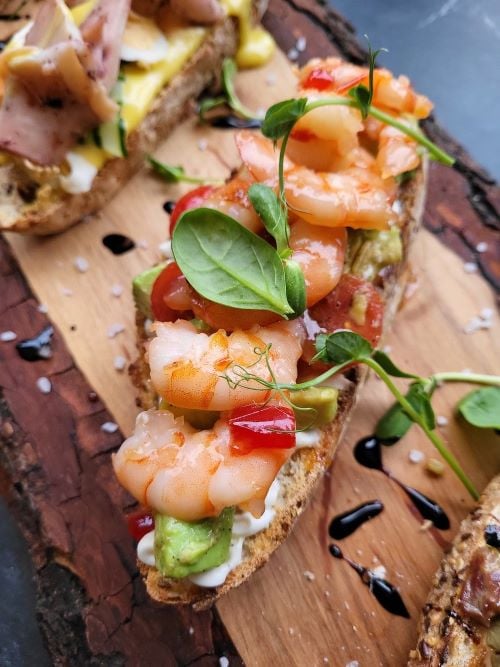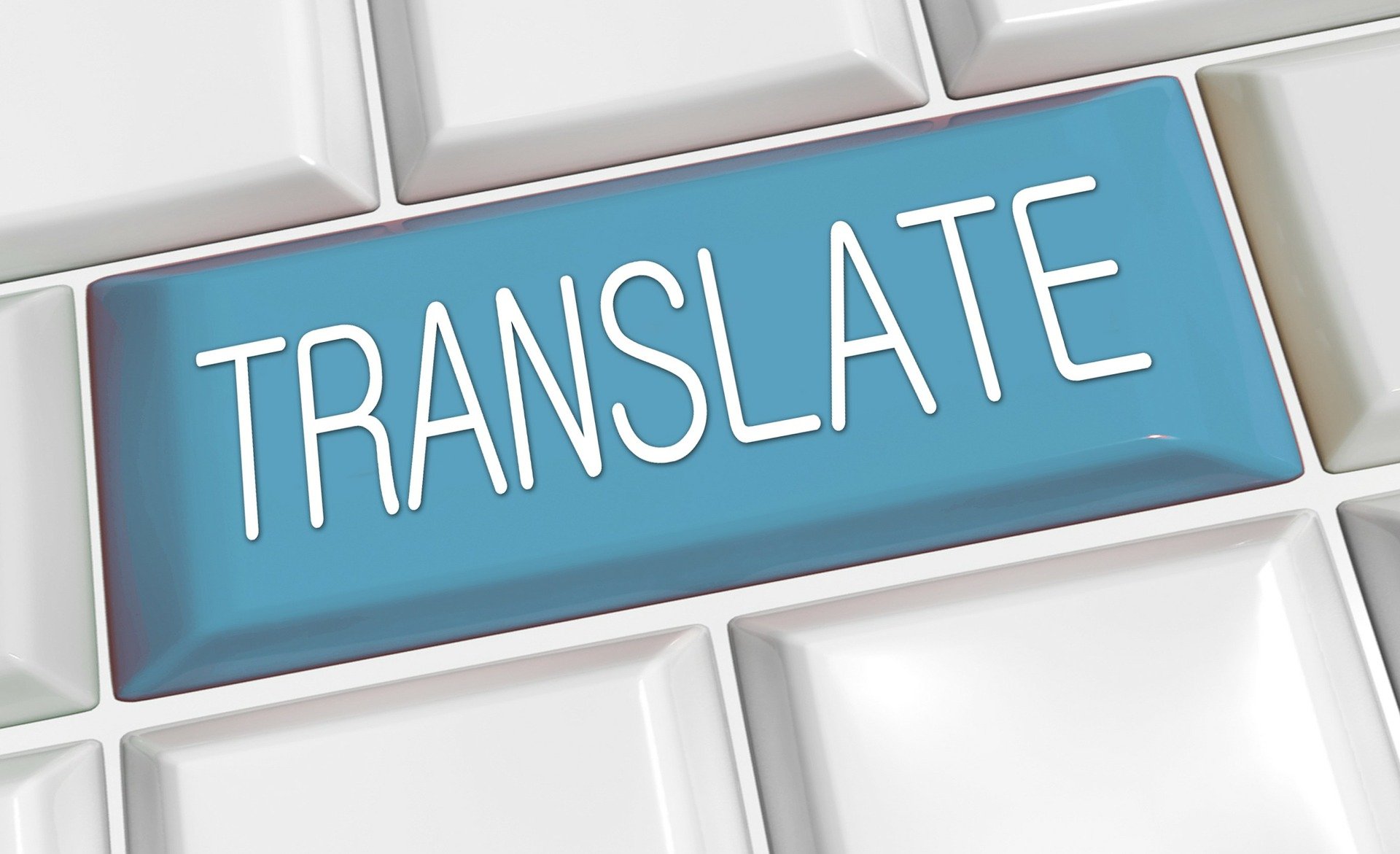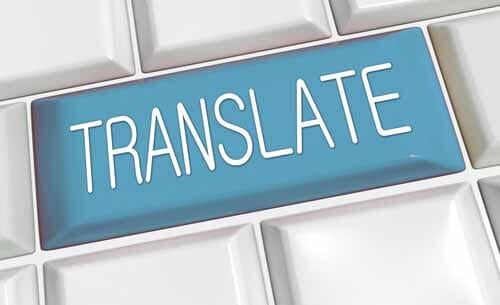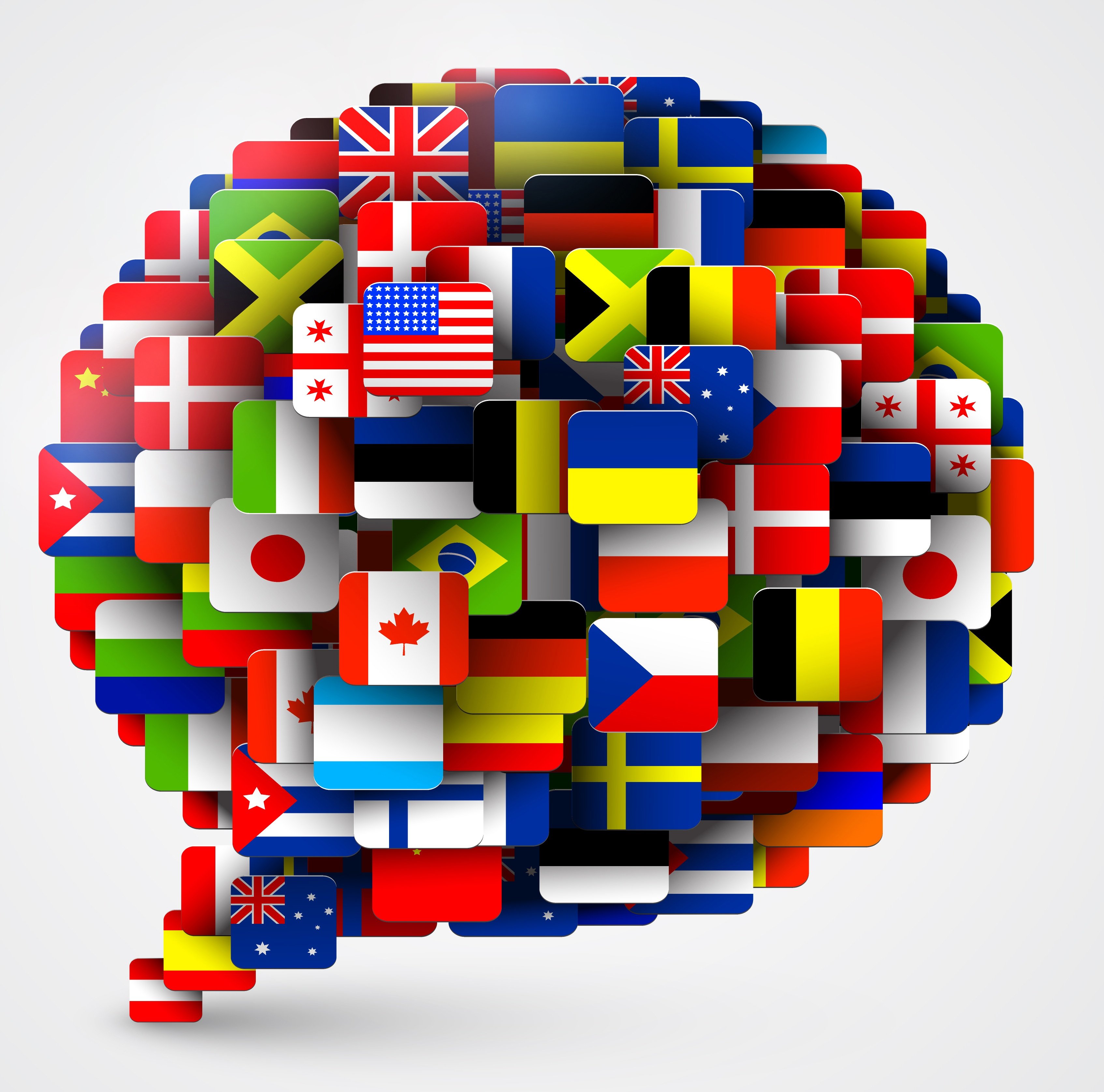Listen to Audio Version:
If you know, you know. Searching for a high-quality translation can be a journey (and a trip!). Run it through Google translate, they say. Just find a pay-per-word online service, et voilà! I know someone who speaks [insert random language here], says [person-you-never-asked]. Machine translation with human editing? It’ll be fine.

The entire process of translation (and interpretation, for that matter) can seem a bit trippy at times, even for us as language professionals. For example, the population of Hawaii, our 50th State, hovers just around 1.4 million with an estimated 130 languages spoken throughout the islands. Other fun facts:
-
The Hawaiian language, itself derivative of other Polynesian languages, nearly went extinct around 1985. The full story is fascinating, and we are happy to report that while still endangered, nearly 25,000 families now count Hawaiian as their primary household language.
-
Hawaiian Pidgin, a mash-up of common languages from different ethnic groups, isn’t actually a pidgin (a “grammatically simplified means of communication that develops between two or more groups of people that do not have a language in common”) so much as “a full-fledged, nativized, and demographically stable creole language,” according to its wiki.
-
At least 1 million residents are fluent in Hawaiian Pidgin so local sales and marketing are often conducted in that language.
-
Unlike the mainland US, Hawaii maintains a high-context business culture. Here, a Japanese media outlet outlines a unique perspective on doing business in Hawaii.
-
Of late, the language most in need of interpreting services in Hawaii is Chuukese, spoken mainly in Micronesia … by only 46,000 humans.
Add to the mix anywhere from 5,000 to 6,000 new words per lexicon each year and it's no wonder that the search for a high-quality Language Services Provider (LSP) can look a little different than the search for other service providers. Here at Rapport International we’ve worked with companies at any and every step of their journey. Ideally, our client companies come to us with a translation management plan baked into their global marketing strategy from the start, in alignment with its corporate roadmap and with buy-in from the C-Suite.
That can be, we know, a “bamboocha” request (Hawaiian Pidgin for “huge, very large”). More commonly, we partner with companies that have tried various translation methods – often to lackluster results – before alighting upon the need for an LSP or an LSP that delivers higher quality translations. At that point, knowing the process means trusting the process, and a high-quality LSP will customarily hit each touchpoint listed below to guarantee a precise, culturally appropriate translation project, on time and within budget.
Finding Professional Language Services: A 10 Traits Checklist

Experience: A high-quality LSP looks beyond the language pair to match each client with a translator who has knowledge and experience in their industry and a similar style and voice; a skilled translator will develop a relationship and understanding of the client’s business as they work together over time – what we call “Linguistic Matchmaking”. Consistency of translations over time (see Consistent, below) means the LSP will make a good initial match and then maintain that pairing and relationship when the client has additional translation projects.

Right Words: A quality translation starts with quality content. If the original content is not clear to the native-speaking translator, it’s hard to capture the meaning in another language. We suggest writing in short sentences, using clear subjects, avoiding tricky language and complex grammar, and – unless circumstances demand it and the LSP is equipped to manage them – resisting colloquialisms, jokes, and slang.
Right Message: Going beyond the right words, a high-quality translator can maneuver the nuances and complexities of language such that the core message gets delivered. For example, Europeans don’t do refrigerator art but Germans do present first-graders with a schultüte, or “school cone” full of presents and supplies, a practice which evokes a very similar message of childhood joy. A high-quality translation can make these qualitative adjustments without sacrificing meaning or propriety.
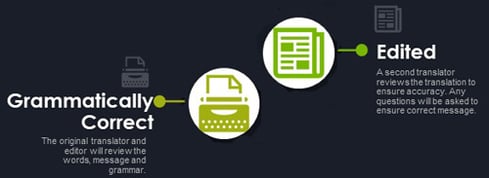
Edited: A high-quality LSP will always conduct quality assurance reviews until the translator-client relationship is thoroughly tested and established. Some companies choose to conduct internal reviews, procure a second translator’s editing services, or back translate from time-to-time, and a good LSP will welcome the additional eyes and input. In fact, here at Rapport International we offer a set of QA options for every type of review and always address questions and changes in timely fashion.
Grammatically Correct: The original translator, with native speaker fluency in both the original and target languages, ensures grammatical and syntactical accuracy while retaining the client’s core messaging. The translator also works with other stakeholders, reviewing, clarifying questions, and ultimately finalizing the words, message, and grammar.
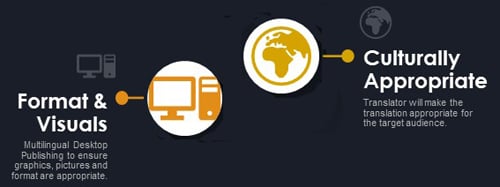 Culturally Appropriate: Throughout the entire process, translators account for cultural norms on myriad levels. From word choice to traditions, from colors to pictures, from branding to contextual business practices, a high-quality LSP prides itself on cultural sensitivity, striking just the right balance between accuracy and respect. In addition, a high-quality LSP remains ever-vigilant to the oft-changing international landscape.
Culturally Appropriate: Throughout the entire process, translators account for cultural norms on myriad levels. From word choice to traditions, from colors to pictures, from branding to contextual business practices, a high-quality LSP prides itself on cultural sensitivity, striking just the right balance between accuracy and respect. In addition, a high-quality LSP remains ever-vigilant to the oft-changing international landscape.
Format & Visuals: Visuals (graphics, pictures, flags, etc.) are generally easier to track because they’re top of mind and front-and-center. A high-quality LSP will focus on every detail; for example: formatting of drop-down menus, currency and other units of measurement, culturally inappropriate colors. Word count often affects formatting, so a high-quality LSP offers multilingual desktop publishing services, which ensures consistent and elegant formatting for websites, brochures, advertisements, and more.
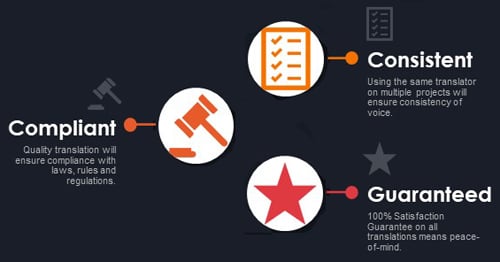
Consistent: Linguistic Matchmaking means longstanding client-translator relationships and consistency of voice across the company’s website and throughout the company’s branding and external messaging, which ultimately elevates the customer experience. A high-quality LSP uses this consistency to the company’s financial benefit as well, exponentially reducing cost and turnaround times by reusing meaningful content and keeping translators current on client company styles and messaging.
Compliant: A high-quality LSP will execute a translation management strategy designed to meet all industry and exporting requirements, whether domestic or global. Interestingly, the Voices of Regulatory Translation are many, and differ from other types of content both in tone and intent. For example, exporters into the EU need to meet CE Marking requirements, clinical research organizations (CROs) must comply with domestic and international regulatory agencies, and US schools, courts, and hospitals strive to meet and exceed state and federal interpretation service requirements. Any ill effects due to liability will take time to surface so addressing potential issues from the outset means cost-savings in the long run.
Guaranteed: Certified translations simply refer to a signed, notarized note from an individual or LSP affirming authorship. Instead, look for a 100% Satisfaction Guarantee from your selected vendor for complete peace-of-mind. A high-quality LSP will stand by the quality, timeliness, and value of their work, 100% of the time.
These 10 touchpoints are designed to make the journey of finding an LSP easier; we navigate the rest for you. Paired with our list of 50 Questions to Ask When Hiring a Translation Company, you can’t go wrong – a high-quality LSP will routinely meet your “high-quality” expectations and can stand on a record of positive client feedback based on business success. Or as they say in Hawaii: You’ll find a true LSP partner, “guaranz ballbaranz” (“gǣˈ-renz bo-bǣˈ-renz,” guaranteed)!
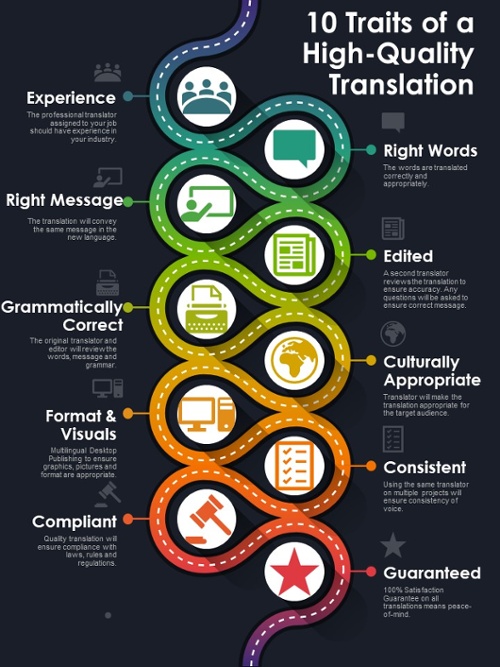
Rapport International specializes in multilingual communications, providing language translation and interpretation services that are accurate and culturally appropriate. We use the right voice and the correct terminology to avoid liability, customize services to your needs, and deliver on time and within your budget. With our 100% satisfaction guarantee, you can trust that it’s done right. Contact us today if you would like more information or to get a free quote.
Popular Posts
Popular industry news, interviews, technologies, and resources.



